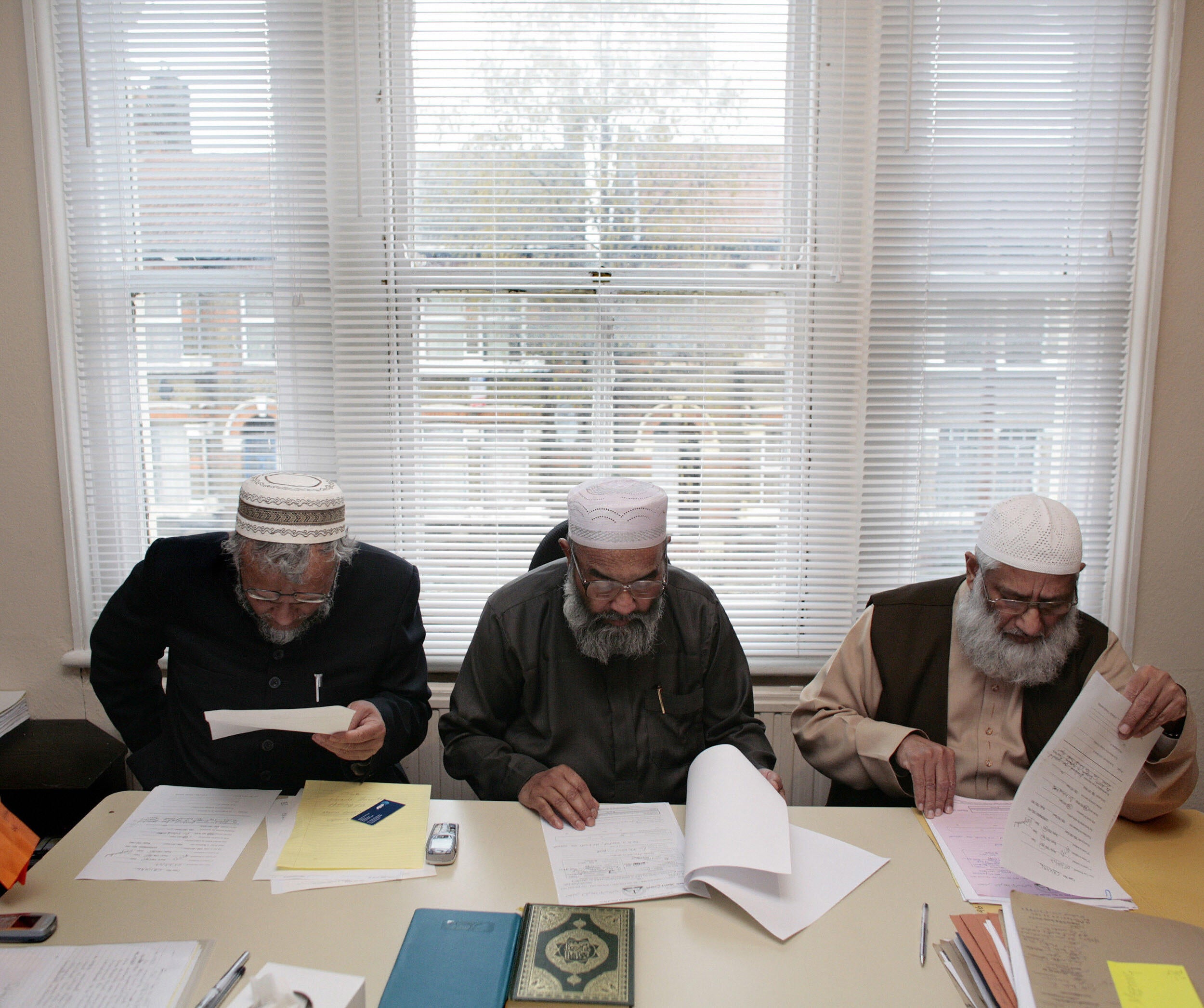No one talks about the fact that in sharia courts, British Muslim women have fewer rights than women in Islamic countries
Many Muslims on my social media are complaining about a new documentary called ‘The Truth About Muslim Marriage’ airing this week, but the truth is that things do need to change


Channel 4 has commissioned a documentary titled The Truth About Muslim Marriage, to be shown this Tuesday. It examines whether Britain’s centuries-old marriage laws need to be updated to reflect and better serve today’s multifaith society.
The sighs and groans have already begun from Muslims about this on my social media. “Not another documentary ‘othering’ Muslims,” have been the cries.
I do not share this complaint. I have heard enough tales of women wronged and almost destroyed in the cases of separation and divorce to know that this is a subject that needs to be shouted about from the rooftops in order to obtain a change in the law. One which will give British Muslim women the right to a civil divorce and a share of matrimonial finances.
Take the case of a friend of a friend who tried to separate from her husband. Actually, she was already separated. She paid her own rent, utility bills and living costs, as well as solely providing for her three children who were all under the age of 10. Her peace of mind and happiness were all on hold as she tried to obtain a divorce through the Sharia Council because her husband refused to grant her one.
For a Muslim man, it is simple. He merely has to say “I divorce you” (talaq) three times over a period of separation and the divorce is legitimate. A Muslim woman cannot say the words. She has to go to an Islamic judge in a Muslim country, or a sharia council in non-Muslim countries, to seek a judicial decree on specific grounds to be free. If she does not have any grounds for a divorce, she has to waive her “Mehr” – a compulsory financial gift by her husband.

I remember my friend’s friend at social events 10 years ago when she was dating her husband-to-be. She was so happy. He was so charming. He was the type of man who insisted on paying for all her friends at the table if they were single or unaccompanied by a husband. We all thought he was a gentleman and she revelled in the knowledge that he was all hers.
They tied the knot with an Islamic ceremony, the Nikah, and didn’t bother with a civil one. They were happy until the pressures of married life and children brought a whole different reality to their lives.
He cheated – several times. She forgave and tried to adjust her life, her views, and her tolerance levels over and over again. It went on for a while until something changed. She became more spiritual and, in doing so, reached the conclusion that she did not have to tolerate his behaviour. Her faith taught her that she was an equal human being who was worthy of respect.
He did his best to twist her newfound spiritual learning to suit his needs: “God rewards wives for their patience and obedience in the hereafter.”
She was having none of it. Something had stirred in her. She had rediscovered her self-esteem, despite his best efforts to thrash it into tiny pieces over the years.
Her answer was simple: “I want to be happy in this life.”
He took her rejection of him in his stride and remarried after the separation. Not a civil ceremony, mind, but an Islamic one. He was clever enough not to want a paper trail following him under the country’s laws.
Due to his refusal to grant her an Islamic divorce, she was left hanging in limbo while he was free to build a new relationship with another woman and have more children.
Most people wondered why my friend’s friend refused to do the same. Why did she need a religious person or certificate to tell her that her marriage was over? Surely his lack of financial contributions to their children and her household proved that he has ended his relationship with her.
Despite struggling to obtain her divorce, my friend’s friend persisted, for in her mind she was a Muslim woman who had entered into a religious marriage contract with this man. It was the Nikah and in the eyes of her faith and her community she was married to him. In order to be free from him, she needed to be granted that divorce.
The civil law courts under which she should have been protected could not grant it because she had been naïve, foolish, ignorant, or bullied out of her rights, depending on your perspective. Not undergoing a civil ceremony had been one of the biggest mistakes of her life. She had given up her own rights willingly. She fully understood how she had allowed herself to become a victim, but she still wanted a religious end to her religious wedding.
Legally this meant nothing, but spiritually and culturally she believed she would be committing a sin if she married another man without obtaining a divorce first.
It is this belief and the lack of protection for these women under the country’s law that has led to sharia councils springing up in the UK. According to the thinktank Civitas, there are about 85 in existence. Some are informal gatherings of “authoritative figures”; others are formal setups attached to mosques.
For my friend’s friend, the pursuit of the divorce was soul-destroying. It was a longer process than she would have liked. He threw a spanner in the works by disputing the custody of the children, then claimed that perhaps they would be better off with their mother, but refused to commit to maintenance if he couldn’t have them full-time. The man mocked her, and despite the rage of her family and friends, there was nothing anyone could do.
My friend’s friend was finally granted her decree by the Sharia Council earlier this year. The procedure dragged on and cost her money and nonstop stress. Yet it was a path she insisted on because of her faith. She wanted to break the religious contract with the father of her children, allowing herself to be free to marry again if she wished.
So how do we compromise? How do we make the law better and offer protection to women of faith?
Aina Khan, Head of the Islamic Department at the law firm Duncan Lewis and a campaigner for better protection for women, believes she has the answer. She launched her campaign “Register Our Marriage” in 2014 to lobby for a change in the law, and to spread awareness of lack of rights.
“The Marriage Act 1949 must be updated to require all faiths to register their marriages. This would mean Muslims must register religious ceremonies under civil law, just like they do in every Muslim country,” she says.
“This change in our law will give British Muslim women the right to a civil divorce and a share of matrimonial finances. This civil divorce can be simply mirrored by an Islamic divorce from a sharia council within a few weeks and at low cost. This is already being done by my Islamic Department, which does not charge a client for an Islamic divorce if they have already obtained a civil one, and the fee of the Sharia Council is £100.
“In contrast, if there has not been a civil marriage, the fee of the Sharia Council is £300-£400 because of the extra work needed to investigate the divorce application. Plus I am increasingly hearing complaints of one year-plus delays and misogyny, which causes deep distress to women who are already suffering.”
But what about the backlog of women who have not entered civil ceremonies and still need an Islamic divorce – what of them?
Khan has her proposals ready: “If there has been no civil ceremony and the wife does apply to a sharia council, the divorce should become a paper process as in English law and there should be no requirement to attend before a panel of scholars and discuss private matters, unless the divorce is defended.
“There must be a central governing body to ensure best practice, including a standardised application form, fee, divorce certificate and timescales, so the service is the same across the UK.”
Aina Khan’s proposals hold weight. It’s not often we can say that British Muslim women’s rights should match those of the women in Muslim countries.
Join our commenting forum
Join thought-provoking conversations, follow other Independent readers and see their replies
Comments
Bookmark popover
Removed from bookmarks